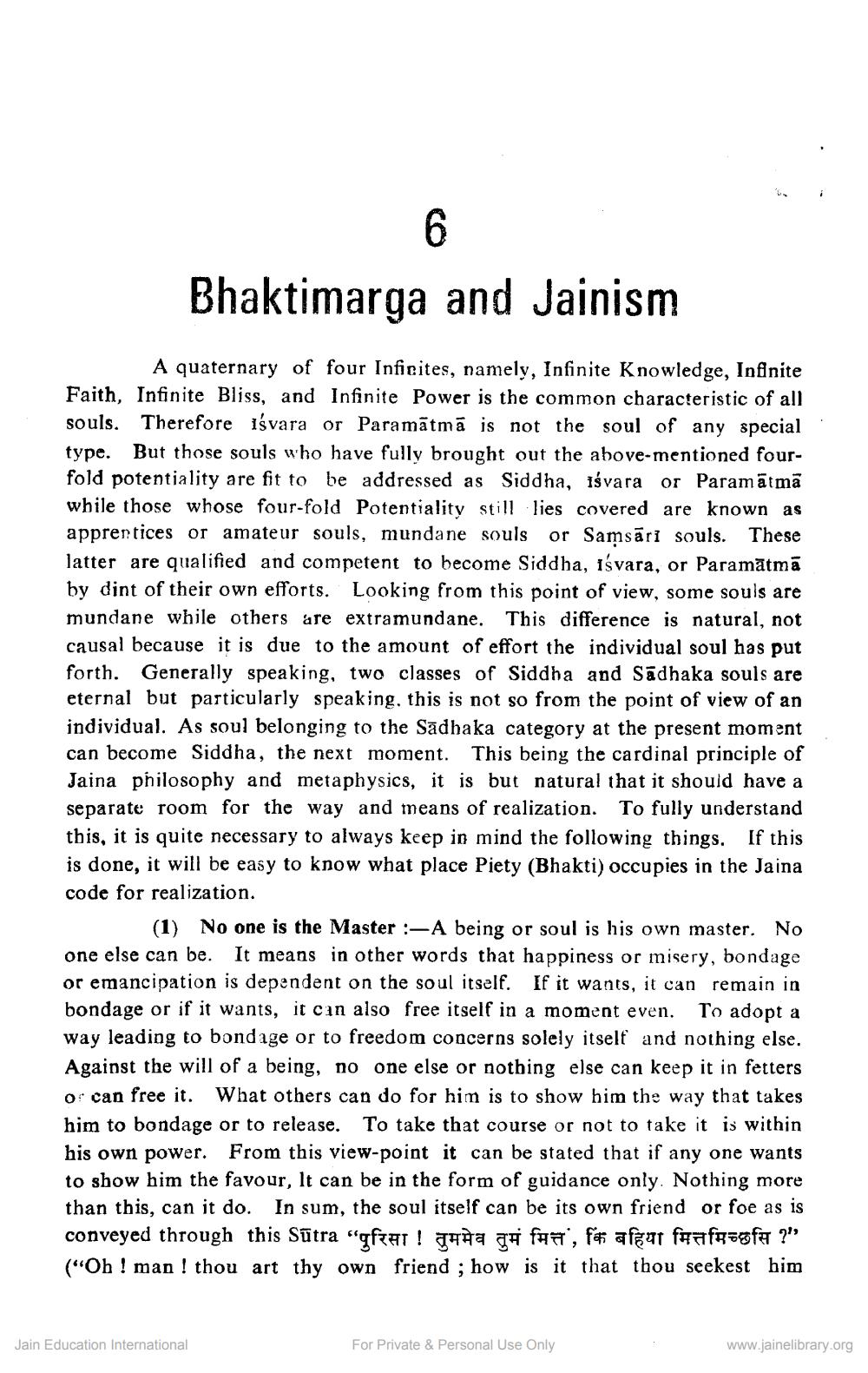________________
Bhaktimarga and Jainism
A quaternary of four Inficites, namely, Infinite Knowledge, Infinite Faith, Infinite Bliss, and Infinite Power is the common characteristic of all souls. Therefore iśvara or Paramātmā is not the soul of any special type. But those souls who have fully brought out the above-mentioned fourfold potentiality are fit to be addressed as Siddha, isvara or Paramātmā while those whose four-fold Potentiality still lies covered are known as apprentices or amateur souls, mundane souls or Samsāri souls. These latter are qualified and competent to become Siddha, iśvara, or Paramātmā by dint of their own efforts. Looking from this point of view, some souls are mundane while others are extramundane. This difference is natural, not causal because it is due to the amount of effort the individual soul has put forth. Generally speaking, two classes of Siddha and Sadhaka souls are eternal but particularly speaking, this is not so from the point of view of an individual. As soul belonging to the Sādhaka category at the present moment can become Siddha, the next moment. This being the cardinal principle of Jaina philosophy and metaphysics, it is but natural that it should have a separate room for the way and means of realization. To fully understand this, it is quite necessary to always keep in mind the following things. If this is done, it will be easy to know what place Piety (Bhakti) occupies in the Jaina code for realization.
(1) No one is the Master :-A being or soul is his own master. No one else can be. It means in other words that happiness or misery, bondage or emancipation is dependent on the soul itself. If it wants, it can remain in bondage or if it wants, it can also free itself in a moment even. To adopt a way leading to bondage or to freedom concerns solely itself and nothing else. Against the will of a being, no one else or nothing else can keep it in fetters or can free it. What others can do for him is to show him the way that takes him to bondage or to release. To take that course or not to take it is within his own power. From this view-point it can be stated that if any one wants to show him the favour, It can be in the form of guidance only. Nothing more than this, can it do. In sum, the soul itself can be its own friend or foe as is conveyed through this Sūtra “feat! J a që f , fx afgnt frafragfa ?" ("Oh ! man ! thou art thy own friend ; how is it that thou seekest him
Jain Education International
For Private & Personal Use Only
www.jainelibrary.org




